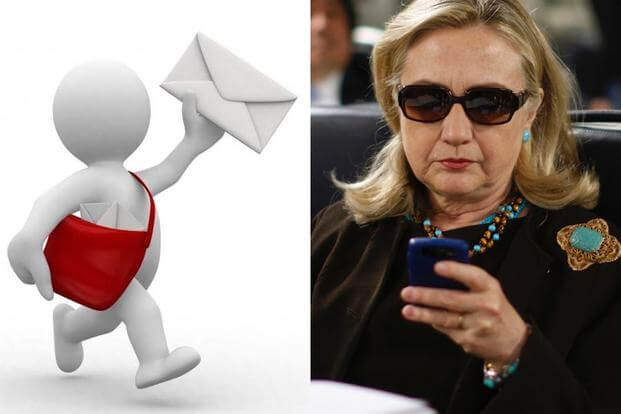FBI director James Comey is in the spotlight because the agency decided not to recommend that the Justice Department prosecute former Secretary of State Hillary Clinton for using a personal account and a personal email server to conduct business.
There is clear evidence that Clinton could be prosecuted under the strictest interpretation of the law. Why would Comey (who has been widely respected in Washington) decide to give her a pass?
In his statement to the media, he explained that the FBI has historically prosecuted cases that have involved one or a combination of the following:
- "clearly intentional and willful mishandling of classified information;
- or vast quantities of materials exposed in such a way as to support an inference of intentional misconduct;
- or indications of disloyalty to the United States;
- or efforts to obstruct justice."
General David Petraeus was actively sharing information he knew was classified with an individual with whom he was having a personal relationship, which arguably makes him guilty of at least the first two requirements on the list.
There are two military cases that invite comparison to Secretary Clinton's situation:
Major Jason Brezler was forced out of the Marines for using his private email account to send a warning to fellow Marines about an Afghan Police Chief Sarwar Jan's alleged links to the Taliban.
Navy Petty Officer First Class Kristian Saucier used his cellphone camera to take pictures in the classified engine room of the USS Alexandria, then destroyed his laptop, camera and memory card after he learned he was under investigation.
Both men have told the media that they believe Clinton is getting special treatment.
It's easy for many Americans to forget that--in technology years--Hillary Clinton is really, really old. (Let's be fair: so are Donald Trump and Bernie Sanders.) She was born in 1947 and was living in the White House the year that AOL finally took off: ask your grandparents and they'll tell you that AOL was the first email account the vast majority of Americans ever had. Blackberry mobile email devices weren't widely available until 1999-2000, around the time she moved out of the White House. Seriously, all three remaining candidates (Bernie still hasn't dropped out) are old enough to have been employed adults in the days before fax machines, a technology that's now so dead that most young people have never seen one.
Safe to say: our next president will not be a digital native (feel free to hijack the comments below if you have strong feelings about why we're about to elect someone who's not).
Hillary Clinton is obviously not the only government employee who's bad at email. And anyone's who's dealt with classified information knows that government security system can be incredibly frustrating for anyone who's used to iMessage or Gmail. A 2015 Washington Post article cites a survey that found that 1 in 3 federal employees use personal email for work. That article cites a telling anecdote about Secretary Clinton's own frustrations with the system:
Our colleagues spotted one exchange with an aide where Clinton is frustrated that an aide was having trouble e-mailing her a public statement by former Prime Minister Tony Blair because it had been entered into the State Department’s system for exchanging classified information, making it impossible to forward.
“It’s a public statement!” she wrote. “Just e-mail it to me.”
Here's the question: Did Comey decide not to recommend prosecution because there are hundreds (0r thousands or tens of thousands) of government employees would have been in danger of prosecution if he had applied the statutory standards to a situation he decided wasn't an intentional security breach?
When it comes to the Clintons, everything is supercharged on the internet, but there's a core issue that some of our readers can illuminate: Does the government's classified communications system need an overhaul? Are we keeping up with technology breakthroughs in the private sector? Does ease of use on the iPhone make you more likely to break the rules?




